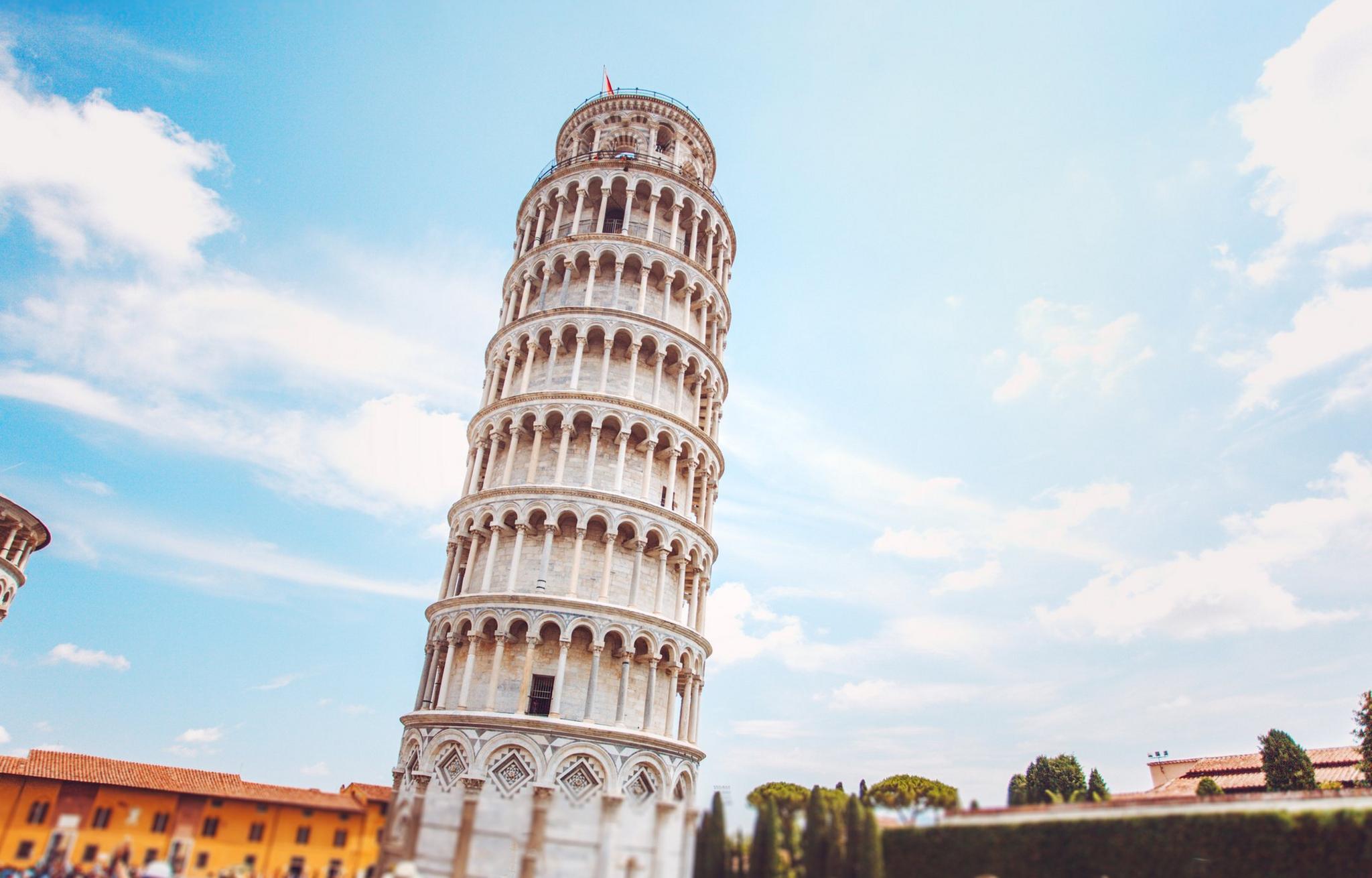Leaning Tower of Pisa leaning less after conservation work
- Published

The future of the world's most famous wonky tower looks better than expected, after conservation work has helped to correct its lean.
The Tower of Pisa in Italy started to lean during its construction, which began almost 850 years ago, way back in the 12th Century.
Soft ground beneath the tower meant that its foundations weren't able to properly support it, and it started to tilt.
But it became world famous because of it's 4.5 metre lean, which made it look like it was going to topple over.
Tourists love to grab a snap pretending to hold the leaning tower up
Tourists from around the world visit the unusual landmark, many wanting to get a photo taken pretending to hold it up.
The Tower of Pisa's flawed foundations have actually helped to protect it from damage from earthquakes.
Because the soil underneath the tower is so soft, it has helped to cushion it when earthquakes could have otherwise caused it to crumble.
Now, after it's latest check-up, the local heritage agency say the tower is in excellent health and its tilt is beginning to slowly reverse.
It has lost 4cm of its lean in the past 20 years, which is more than expected.
Considering it is an 850-year-old patient with a tilt of around five metres... the state of health of the Leaning Tower of Pisa is excellent
In the 1990s the tower closed so that engineers could worked on stabilising it.
It was a project that cost ВЈ25million and took 11 years.
The tower's tilt has made it into a famous landmark
It involved re-digging underneath the tower, and putting weights inside it to slow its gradual lopsided sink, and it helped to correct the lean by 40cm.
Now a conservation group called Opera della Primaziale Pisana regularly monitors the tower and makes sure that the conservation work continues to help it.
The latest check-up proves that all the efforts to protect the tower have continued to be successful.
One official even thinks the tower could straighten one day.
- Published5 April 2017
- Published2 May 2021
- Published16 March 2020
